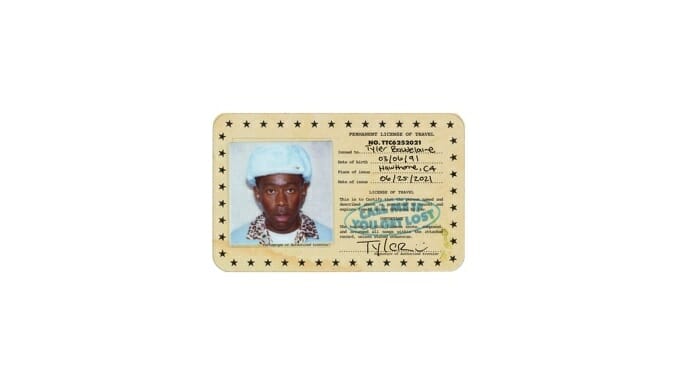Tyler, The Creator Reckons with the Splendors and Consequences of Success on Call Me If You Get Lost

When Tyler, The Creator stepped onto the Grammys stage in early 2020 to collect his Best Rap Album award for 2019’s IGOR, the air outside Staples Center was solemn, the crowd inside mostly unaware of the tragedy that had occurred up north off the freeway in Calabasas mere hours before the ceremony. “I don’t know if I’m gonna be up here again,” Tyler deadpanned to the crowd, just as ESPN started breaking the news of Kobe Bryant’s death to the millions tuning in. Some guests in attendance stood, cheering for Tyler as he seized the moment, thanking and hugging his tearful mom, Louisa. Others remained in their seats, clapping sporadically, watching how the limelight was now bestowed upon one of Southern California’s most gifted sons. The kid who transformed Fairfax Avenue with a multi-million-dollar fashion line, a critically revered record and a decade-long personal metamorphosis was finally getting his due—receiving standing ovations from industry heads 10 rows back. But outside the arena, the heart of Los Angeles was breaking—a city split down the middle with grief, forced to reckon with an unimaginable and unexpected loss.
Less than two months later, the United States was in lockdown and Tyler found himself in a studio somewhere in the mountains. A few Instagram posts—including a clip of him accompanied by two keyboards, playing an early draft of an unknown instrumental that’s now recognizable—and captions edited to resemble entries on a tracklist, and his fanbase began to suspect a new album was on the horizon. When billboards adorned with the words “CALL ME IF YOU GET LOST,” pastel stars and a mysterious phone number—with various recordings waiting for callers on the other end—started popping up in Downtown L.A., a year’s worth of speculation became an urgent reality.
Tyler was back—etching another chapter into his “every two years” album cycle schedule. In the eight days between Call Me If You Get Lost’s announcement and its release, questions arose about whether Tyler could live up to the confessional plots of Flower Boy and IGOR or not—if two years was enough time for him to forge a banger from the interstellar debris of the two projects that transformed his entire catalog. But Call Me If You Get Lost delivers, by way of investigating a part of Tyler we’ve not yet seen on any of his previous projects: transparency. Where Flower Boy and IGOR found Tyler’s unreliable-by-ambiguous-default narrators using an album platform to admit to something, Call Me If You Get Lost puts the pleasures, critical exhaustion and romantic ruins of Tyler’s life behind the scenes on full display with celebratory, and sometimes brutal, honesty.
On Call Me If You Get Lost, Tyler rolls out of bed in a Goblin-era headspace lyrically, syncing his flamboyant, gut-wrenching turmoils and triumphs with instrumentals as polished and meticulous as those on IGOR. But the ritzy vibes of IGOR’s story, and the protagonist we had no choice but to feel empathy towards, were only momentary spoils. When Tyler ditches the bloat of IGOR’s self-doubt and puts himself out on the line while he’s still drawing it, there’s a newfound confidence afoot—even when navigating a world where the person he’s in love with is dating someone else. And only Tyler could throw not one, but two eight-plus-minute symphonies (“SWEET / I THOUGHT YOU WANTED TO DANCE” and “WILSHIRE”) about that unrequited love into the guts of a project brimming with sub-three-minute cuts of flex-swollen bars and award-winning ooze.
-

-

-

-

-

-

-

-

-

-

-

-

-

-

-

-

-

-

-

-

-

-

-

-

-

-

-

-

-

-

-

-

-

-

-

-

-

-

-

-








































